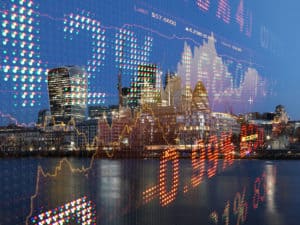 How do you think you can build an inclusive and cultural environment using the hybrid working model?
How do you think you can build an inclusive and cultural environment using the hybrid working model?
We’ve been working remote and hybrid for almost two years now. We gave traders the ability to work from home by equipping them with all the necessary technology but we also need to have a presence on site just in case we have a VPN problem etc. What we do is really dependent on the team. It’s not the same for a team of eight people than it is for a team of three people. The trading desk in Paris is where we have the largest contingency and some teams are very large so it’s difficult for them all to be in the office on the same day but we try to do that every once in a while. Microsoft Teams has been a great tool.
We try to have everybody together in the office once in a while and then have regular virtual meetings with people using their cameras. We have also tried to do some informal events. It’s just very simple drinks but it’s something that we wouldn’t be able to do during the pandemic. Every desk has interns that work on a rotational basis. The juniors are on the desk all the time because that’s the only way that they can learn. They’re eager to do this. They’re equipped to work at home if they’re required to but it’s much better for younger people to see and to feel how other people – more trained senior staff – are trading in order to learn the ropes and understand the products. The learning curve is a lot steeper when you’re physically present. There are a lot of projects involved in a trading mission which require from time to time a quieter environment to think or write. These type of tasks are better done from home. Sometimes it is easier to extract yourself and be very productive for a couple of hours on something that would have been impossible being in the office.
Has the hybrid working model posed any challenges around recruitment? How has it impacted the recruitment process?
It has opened the opportunities to look for talent outside of people who are physically based in Paris. The flexibility that we give to traders to work from home has expanded the talent pool. The challenge is that interviewing on Teams is not the same as sitting next to somebody and physically seeing their reactions. You use different body language when sitting face-to-face. I try as much as I can to interview anybody physically that we are onboarding. We haven’t been able to do that 100% of the time and it’s something that I dearly missed when we were at the height of the pandemic.
We need people who speak French. We’re an international organisation but if you don’t speak French, you can’t really do your job properly. There were a lot of French people living abroad and some of them have come back to France because of the pandemic. It has actually opened up a lot of opportunities for us.
What will be the most impactful regulatory changes for trading throughout this year?
Regulatory divergence is a major issue as it negatively affects liquidity. It cannot be said any other way. People are frozen by all these regulation changes. If I do this would I be compliant with EU, but noncompliant with Brexit? And how do I comply with the US? On top of that, we have had all the sanctions from the Russia and Ukraine conflict since the end of February which has added another layer of compliance in each country. It takes our attention away from trading. We need to understand each change. It takes time to read, to understand, to digest and to adapt yourself. The risk is that we miss an important regulatory change just because there is too much stuff going on as nobody has time to look at everything.
I suspect that the most important regulatory changes are the same for everybody. There are some key themes that are particularly important for trading. I think the consolidated tape will have a massive impact in the way we trade and in the way we digest information. Look at the adoption of TRACE for fixed income in the US, it significantly reduced market liquidity. Trading big sizes in the US became almost impossible. This is something we need to take care to avoid in Europe.
I think CSDR, if it goes through, that also has the possibility to change completely the landscape. The forced buy-ins could mean it would be impossible to short and when you cannot short that means that you can only sell what you have and that means that it’s just a nightmare to trade. They’ve been delayed and I hope that there is some reasoning behind that to ensure we avoid them but we don’t know that it has been totally abandoned. It has only been delayed. Transparency at any cost is not great because it ends up meaning that people will hide. I have the personal view that whenever you restrict too many things, people will always find a way to do it in a diverted way. Obviously, we could expect divergence between EU and UK on transparency but that would be detrimental for everybody.